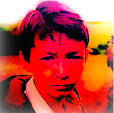Owen Linzmayer, Owen W. Linzmayer,
"Apple Confidential 2.0: The Definitive History of the World's Most Colorful Company"
No Starch Press | 2004-01 | ISBN: 1593270100 | 323 pages | PDF | 6,2 MB
"Apple Confidential 2.0: The Definitive History of the World's Most Colorful Company"
No Starch Press | 2004-01 | ISBN: 1593270100 | 323 pages | PDF | 6,2 MB
Apple Confidential examines the tumultuous history of America's best-known Silicon Valley start-up--from its legendary founding almost 30 years ago, through a series of disastrous executive decisions, to its return to profitability, and including Apple's recent move into the music business. Linzmayer digs into forgotten archives and interviews the key players to give readers the real story of Apple Computer, Inc. This updated and expanded edition includes tons of new photos, timelines, and charts, as well as coverage of new lawsuit battles, updates on former Apple executives, and new chapters on Steve Wozniak and Pixar.
Amazon.com Review:
Owen Linzmayer's Apple Confidential is subtitled The Real Story of Apple Computer, Inc., and while nobody will ever know the complete, "real" story about Apple, Linzmayer's is probably as close as they come. Having covered Apple news since 1980, he offers extensive insider details about Steve Jobs, Steve Wozniak, John Sculley, Gilbert Amelio, Bill Gates, and other major players whose lives were (and are) intertwined with Apple's history. And along the way, we also learn about lesser-known figures whose stories have remained hidden in the Apple myth: Ronald Gerald Wayne, for example, who was actually a partner with Wozniak and Jobs in the original incarnation of the company, but who sold his share when he realized he would be financially vulnerable if it should fail.
Linzmayer's tale does have a few drawbacks. Because he mixes a chronological narrative with chapters that focus on key points in the Apple story, he sometimes repeats himself. Case in point: the chapter "Big Bad Blunders" makes a great record of Apple's failures, but the story of the exploding Powerbook 5300s is duplicated at later points. Nonetheless, Apple Confidential is rife with gems that will appeal to Apple fanatics and followers of the computer industry. Especially enjoyable are the revelation of "Easter eggs" that are hidden in several versions of the Mac operating system; the many screen shots, timelines, and telling quotes from Jobs, Gates, Wozniak and others that populate the margins and concluding sections of each chapter; the "Code Names Uncovered" section that makes public the monikers of several secret Apple projects; and Bill Gates's 1985 letter to John Sculley and Jean Louis Gassee pleading for Apple to license Mac technology and develop a "standard personal computer."
--Patrick O'KelleyAmazon.com Review:
Owen Linzmayer's Apple Confidential is subtitled The Real Story of Apple Computer, Inc., and while nobody will ever know the complete, "real" story about Apple, Linzmayer's is probably as close as they come. Having covered Apple news since 1980, he offers extensive insider details about Steve Jobs, Steve Wozniak, John Sculley, Gilbert Amelio, Bill Gates, and other major players whose lives were (and are) intertwined with Apple's history. And along the way, we also learn about lesser-known figures whose stories have remained hidden in the Apple myth: Ronald Gerald Wayne, for example, who was actually a partner with Wozniak and Jobs in the original incarnation of the company, but who sold his share when he realized he would be financially vulnerable if it should fail.
Linzmayer's tale does have a few drawbacks. Because he mixes a chronological narrative with chapters that focus on key points in the Apple story, he sometimes repeats himself. Case in point: the chapter "Big Bad Blunders" makes a great record of Apple's failures, but the story of the exploding Powerbook 5300s is duplicated at later points. Nonetheless, Apple Confidential is rife with gems that will appeal to Apple fanatics and followers of the computer industry. Especially enjoyable are the revelation of "Easter eggs" that are hidden in several versions of the Mac operating system; the many screen shots, timelines, and telling quotes from Jobs, Gates, Wozniak and others that populate the margins and concluding sections of each chapter; the "Code Names Uncovered" section that makes public the monikers of several secret Apple projects; and Bill Gates's 1985 letter to John Sculley and Jean Louis Gassee pleading for Apple to license Mac technology and develop a "standard personal computer."
























































http://rapidshare.com/files/182306748/1593270100.zip
ResponderEliminar